
Browse an alphabetical list of survivors’ oral histories. These interviews describe firsthand accounts and personal experiences during the Holocaust and World War II.
<< Previous | Displaying results 121-130 of 572 for "Oral History" | Next >>
The Germans occupied David's town, previously annexed by Hungary, in 1944. David was deported to Auschwitz and, with his father, transported to Plaszow. David was sent to the Gross-Rosen camp and to Reichenbach. He was then among three of 150 in a cattle car who survived transportation to Dachau. He was liberated after a death march from Innsbruck toward the front line of combat between US and German troops.
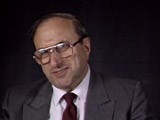
The Germans occupied David's town, previously annexed by Hungary, in 1944. David was deported to Auschwitz and, with his father, transported to Plaszow. David was sent to the Gross-Rosen camp and to Reichenbach. He was then among three of 150 in a cattle car who survived transportation to Dachau. He was liberated after a death march from Innsbruck toward the front line of combat between US and German troops.

The Germans occupied David's town, previously annexed by Hungary, in 1944. David was deported to Auschwitz and, with his father, transported to Plaszow. David was sent to the Gross-Rosen camp and to Reichenbach. He was then among three of 150 in a cattle car who survived transportation to Dachau. He was liberated after a death march from Innsbruck toward the front line of combat between US and German troops.

The Germans occupied David's town, previously annexed by Hungary, in 1944. David was deported to Auschwitz and, with his father, transported to Plaszow. David was sent to the Gross-Rosen camp and to Reichenbach. He was then among three of 150 in a cattle car who survived transportation to Dachau. He was liberated after a death march from Innsbruck toward the front line of combat between US and German troops.

David was born to a middle class Jewish family and attended a Jewish school. In August 1941, after the Germans occupied Kovno, he was forced into the Kovno ghetto, where he shared two rooms with his immediate and extended family. Many members of his extended family were killed during the Great Aktion in Kovno in October 1941. David worked in a forced-labor brigade in the ghetto. In March 1944, he witnessed the Kinder Aktion and was able to save his nephew. During the destruction of the Kovno ghetto, David…
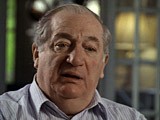
In 1936, David moved to Bucharest to live with his father. As Romania came under German influence, Romanian authorities introduced increasingly harsh measures against Jews. Antisemitic agitation increased and Jews came under attack in the streets of Bucharest and in other public places. David's father decided David should leave the country and arranged passage for him to Palestine. In December 1941, David left Romania from Constanta, a port city on the Black Sea, on the "Struma," an old cattle boat. The…

In 1936, David moved to Bucharest to live with his father. As Romania came under German influence, Romanian authorities introduced increasingly harsh measures against Jews. Antisemitic agitation increased and Jews came under attack in the streets of Bucharest and in other public places. David's father decided David should leave the country and arranged passage for him to Palestine. In December 1941, David left Romania from Constanta, a port city on the Black Sea, on the Struma, an old cattle boat. The…
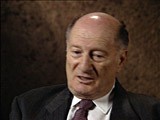
In 1936, David moved to Bucharest to live with his father. As Romania came under German influence, Romanian authorities introduced increasingly harsh measures against Jews. Antisemitic agitation increased and Jews came under attack in the streets of Bucharest and in other public places. David's father decided David should leave the country and arranged passage for him to Palestine. In December 1941, David left Romania from Constanta, a port city on the Black Sea, on the Struma, an old cattle boat. The…
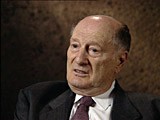
In 1936, David moved to Bucharest to live with his father. As Romania came under German influence, Romanian authorities introduced increasingly harsh measures against Jews. Antisemitic agitation increased and Jews came under attack in the streets of Bucharest and in other public places. David's father decided David should leave the country and arranged passage for him to Palestine. In December 1941, David left Romania from Constanta, a port city on the Black Sea, on the Struma, an old cattle boat. The…
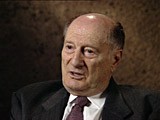
In 1936, David moved to Bucharest to live with his father. As Romania came under German influence, Romanian authorities introduced increasingly harsh measures against Jews. Antisemitic agitation increased and Jews came under attack in the streets of Bucharest and in other public places. David's father decided David should leave the country and arranged passage for him to Palestine. In December 1941, David left Romania from Constanta, a port city on the Black Sea, on the Struma, an old cattle boat. The…

We would like to thank Crown Family Philanthropies, Abe and Ida Cooper Foundation, the Claims Conference, EVZ, and BMF for supporting the ongoing work to create content and resources for the Holocaust Encyclopedia. View the list of donor acknowledgement.